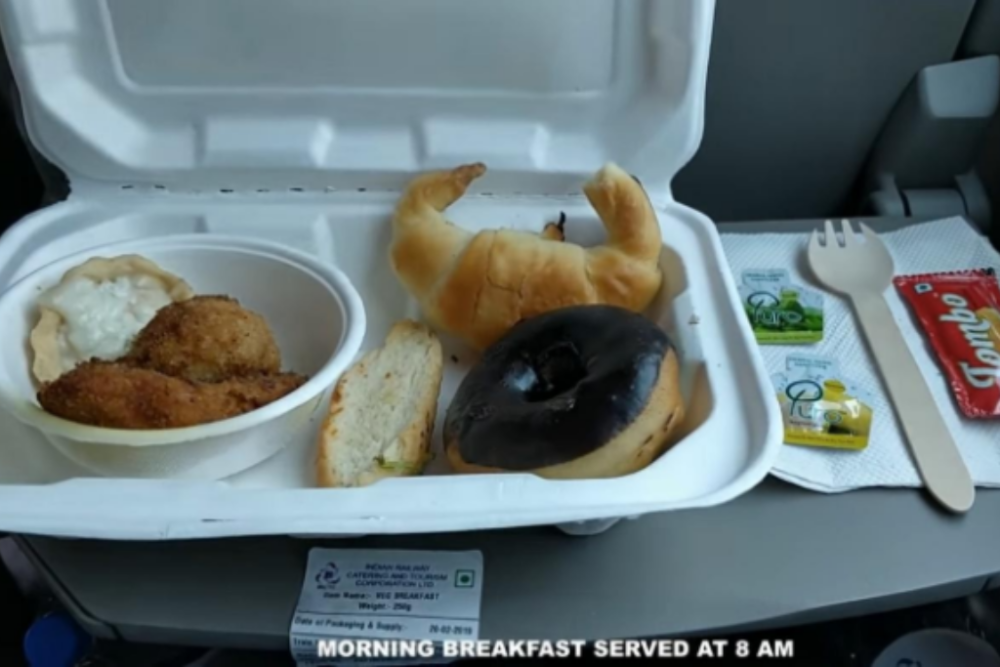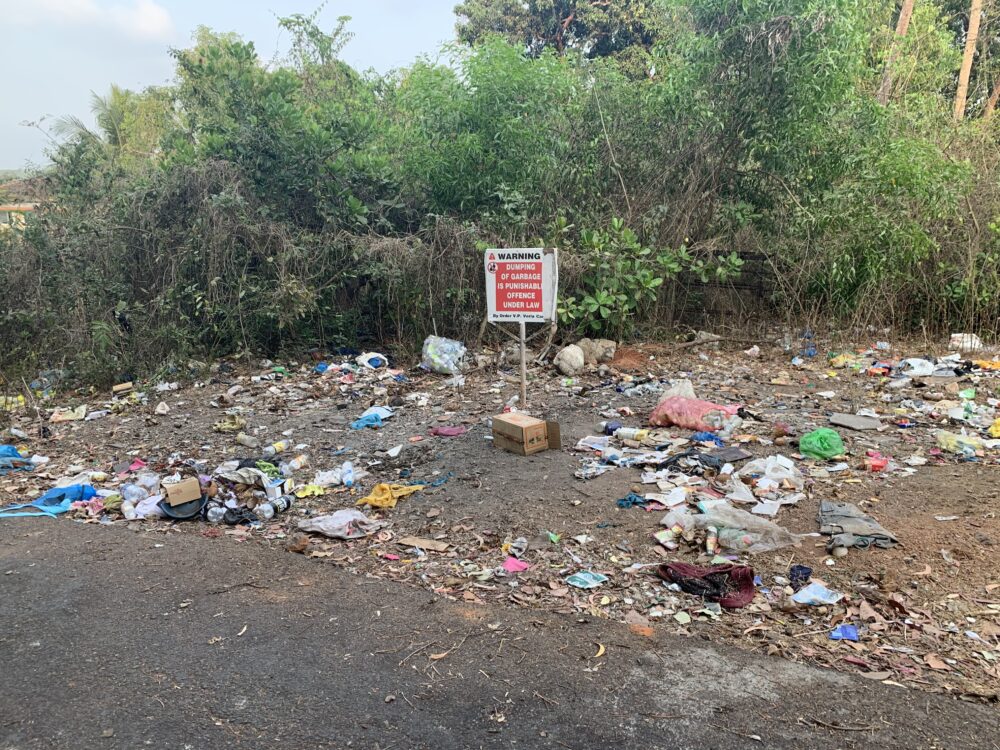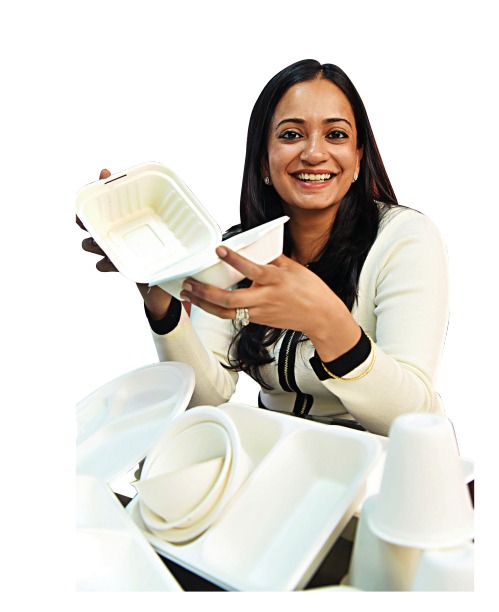Interview with an eco-cutlery pioneer
Monday August 16, 2021 | By Rashi Goel
When hosting people, whether it’s a small picnic or a large music festival, the last thing you want to deal with, after the festivities are over, is dirty dishes. Especially not when there are so many cheap and easily available disposable options in the market. However, over the last few years, there has been an increased awareness about the ill effects of single-use plastic on the environment, which has led many manufacturers to innovate and develop sustainable alternatives.
We catch up with Rhea Singhal to talk about the journey of Ecoware, a sustainable tableware brand she founded in 2009.
What prompted you to start Ecoware?
Before founding Ecoware, I worked in London for Pfizer, a global pharmaceutical company, where I promoted and sold some of the most popular vaccines and drugs created to fight breast and colon cancer, as well as other diseases. My background in pharmacology, coupled with the fact that my mother has twice had cancer, meant that I understood full well the impact of plastics on our lives.
When I moved to India in 2009, I was disturbed by the lack of a formal waste management system. No strict segregation practices were being followed and even if one decided to segregate on one’s own, no backward integrated process existed. The use of Thermocol and Styrofoam, especially in the single-use cutlery and packaging sector, was also not being regulated. It was then that I decided to create a business that directly impacted people and the environment.
 We created Ecoware to make the most sustainable packaging in the most ethical way possible. All our products are 100% natural, compostable and biodegradable
We created Ecoware to make the most sustainable packaging in the most ethical way possible. All our products are 100% natural, compostable and biodegradable
How does your product stack up against others in the market?
Ecoware products are microwave and freezer safe – they can be safely used in a microwave up to 140 C and in a freezer up to -20 C.. But, one of the main problems I found as a consumer was that you couldn’t be sure if the products you were buying were genuinely biodegradable or compostable. This is one of the reasons we gave a LOT of emphasis on certifications. You name it, we have it! Because, while we were sure of creating robust products, we wanted our customers to have that confidence too. We have all our certifications detailed out on our website.
We make products for a circular economy which means that our products degrade naturally within 90 days into compost. This improves soil quality and diverts waste from landfills,
Another reason I like to believe that our products have a competitive edge is that we use agri-waste which would generally be burnt. This helps reduce air pollution and also helps farmers generate additional income.
Who are your clients and how difficult was it to convert your first?
There was definitely a lot of resistance to change earlier on as it was hard to explain the difference between non-biodegradable, compostable, and biodegradable to a lot of our customers. We were lucky that a traditional Indian business like Haldiram’s had the foresight to adapt and became an anchor customer back in 2011.
As awareness has increased, a lot of large-scale event organisers have started choosing us for their events, especially for international-level events such as the Global Citizen Festival in Mumbai where Coldplay also performed.
A big feather in our cap is certainly the Indian Railways.
Has your business suffered owing to Covid-19?
Covid has brought opportunities in other ways. People are associating disposables with hygiene but a lot of them are also aware of the harms of plastic, so they’re aware enough to choose eco-friendly packaging. We’re doing a lot of business with restaurants and have recently developed a couple of new designs for take-away packaging. We’re also supplying to airlines now.
We see ourselves continuing to grow as we find applications beyond just the packaging industry. We’ve found a major stake in the industries such as food & beverages, FMCG, retail trade, wholesale, Healthcare, etc. to name a few. It is expected that the biggest growth in the sustainable packaging industry would be in the Asia Pacific market, largely driven by India & China. This is due to the increase in health awareness among the middle-class population which has the maximum share in the total population of these nations and also due to the growth that these economies are experiencing presently.
 One of Ecoware’s latest partners is Etihad Airlines, which could pave the way for a lot of other airlines to consider.
One of Ecoware’s latest partners is Etihad Airlines, which could pave the way for a lot of other airlines to consider.
Now that events have gone online because of the pandemic, do you still see them as a sizeable share of the market?
Yes. Globally we are seeing a recovery. Countries are gearing up to vaccinate their citizens and start normalizing. There’s a recovery pathway that is being created for this industry. How quickly that happens in India we’re yet to see, but in Dubai and the UK, vaccinated people can go to concerts, food festivals, and sporting events. The US and Europe are also advocating for normalcy. So, I’m more than hopeful that events will make a come-back.
Most eco-friendly customers, especially the large-scale ones, don’t segregate or dispose of the items correctly. What are your views on that?
We’re not into waste segregation and waste management. That’s a real challenge in India, but that’s exactly why our product is a holistic solution. It is completely eco-friendly as it doesn’t need industrial solutions to break down and can break down even in your home compost.
The need of the hour is to raise awareness, and we’re doing everything we can to achieve that through our offline and online marketing. I attend many events and college seminars (virtually during the pandemic), and we even speak to customers directly.
Our goal is to replace as much single-use plastic as we possibly can – In 2019 we displaced over 50M pieces of single-use plastic with Ecoware.
 Replacing plastic is important, but it is even more important to segregate and dispose of waste correctly for maximum recovery and a truly circular economy. Picture credit – Ratika van Noord Bhatnagar, Goa 2021
Replacing plastic is important, but it is even more important to segregate and dispose of waste correctly for maximum recovery and a truly circular economy. Picture credit – Ratika van Noord Bhatnagar, Goa 2021
To know more about Ecoware products, shop or become a partner, visit their website
Check out our article on Cutting through the Clutter to know what other products are available in the eco-friendly disposables space.

